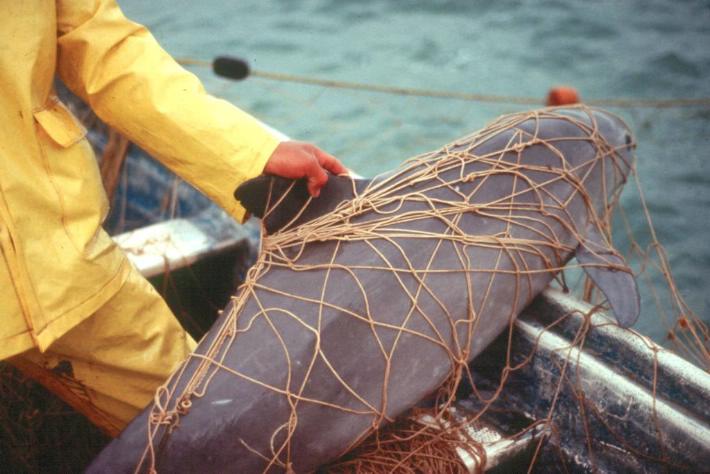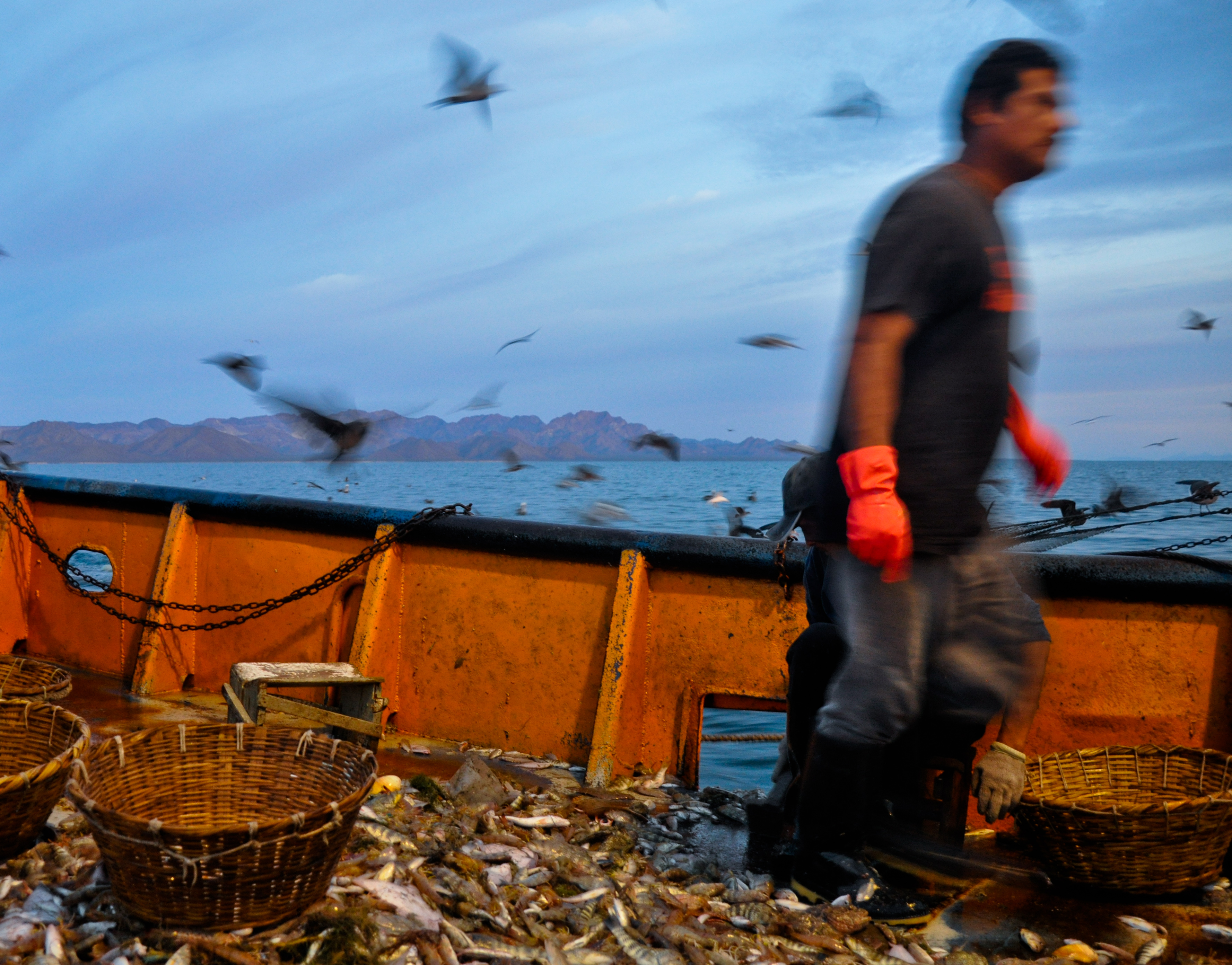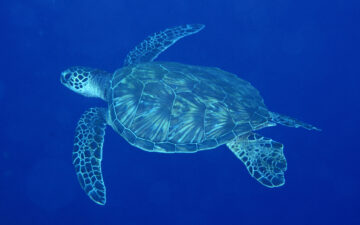Efforts taken to date by Mexico, the United States, and the global community have been helpful, but have not been sufficient to save the vaquita from extinction. Conserving the species will require a fundamental change in the nature and rigor of recovery efforts—to save the vaquita the next round of protection measures cannot be half-hearted, indecisive, or poorly implemented. We need a strategy that can be implemented immediately and then sustained for the long-term—it is simply disingenuous to suggest anything less will do. The following are twelve tasks that must be accomplished if we are to prevent the vaquita from vanishing from the face of the earth.
Conserving the species will require a fundamental change in the nature and rigor of recovery efforts.

Mexico must:
- Remove—in perpetuity—all gillnets from the species’ full range, including those that are being used legally to catch shrimp and finfish, and those that are being used illegally to catch the endangered totoaba. We have long known that gillnets are the primary factor causing the decline of the vaquita.
- Staunchly enforce the prohibition on gillnets using both aircraft, vessels, and aggressive judicial retribution. A prohibition on gillnets is effectively meaningless unless the Mexican government enforces that prohibition.
- Require all fishermen currently using gillnets to fish for shrimp to shift immediately to small trawls (e.g., red selectiva) if they want to fish within the historic range of the vaquita. Small trawls are used effectively to fish for shrimp in other parts of the world and they have been shown to be effective in the northern Gulf of California. Switching gears will require some adaptability by fishermen, but does not pose an insurmountable problem.
- Require all fishermen currently using gillnets to target finfish to shift immediately to alternative, vaquita-safe gear if they want to fish within the vaquita’s historic range. An entangled vaquita will drown in a gillnet used for finfish just as quickly as it will drown in a shrimp gillnet.
- Work with the United States, China, and other Asia nations to end the illegal fishing and trade of totoaba. Gillnets are being used illegally to fish for the endangered totoaba; the swim bladders of these fish are then sold in Asian black markets. Few human activities are as destructive to endangered wildlife populations as these absurd black markets.
- Begin training programs to educate and train fishermen in the use of new, vaquita-safe fishing gear for both shrimp and finfish. Vaquita recovery efforts are not intended to harm fishermen, who will require assistance to shift to safe gear types.
- Support the work of international scientists to maintain the acoustic monitoring system developed over the past 5 years. Keeping track of the status of the remaining vaquita population is critical to guide recovery efforts. The acoustic monitoring system used for this purpose is the best possible monitoring strategy available under these circumstances.

The United States must:
- Bring the full weight of key administrative departments and agencies to bear on this issue. Those include the Department of Commerce (including the National Oceanic and Atmospheric Administration and the International Trade Administration), the Department of State, the Department of the Interior (including the Office of Law Enforcement in the U.S. Fish and Wildlife Service), and the Marine Mammal Commission. Conservation organizations also are key partners in this recovery effort.
- The Department of Commerce, including NOAA and the International Trade Administration, must implement a full embargo of all seafood products caught in all Mexican fisheries if all gillnets are not removed immediately from the vaquita’s historic range. NOAA also must continue to provide scientific expertise to vaquita recovery efforts.
- The Department of State must send a message of strong concern to its Mexican counterparts regarding the pending extinction of the vaquita. That message must convey that the United States stands ready to assist with recovery efforts, but that it also expects Mexico to implement, in a full and effective manner, the recovery measures needed to save the vaquita. The Department of State also must make it clear to their Asian counterparts that the United States fully intends use all means available to it to stop the illegal trade in totoaba.
- The Office of Law Enforcement of the U.S. Fish and Wildlife Service, Department of the Interior, must lead efforts to halt the illegal trade of totoaba parts. Much of the illegal trade apparently goes through southern California, but it must be halted in all areas under U.S. jurisdiction.
- Conservation organizations are key partners in this recovery effort. Funding will be needed to support recovery efforts by the Mexican and U.S. governments. The conservation community may have access to resources not otherwise available to government departments and agencies, and they have the flexibility to respond more quickly to funding needs.
 /
/
There is hope but we, collectively, face a choice. We must make it now and there’s no going back if we fail. If we cannot save this species when the problem is so abundantly clear and manageable, then our hopes and aspirations for other endangered species are little more than whimsical.





